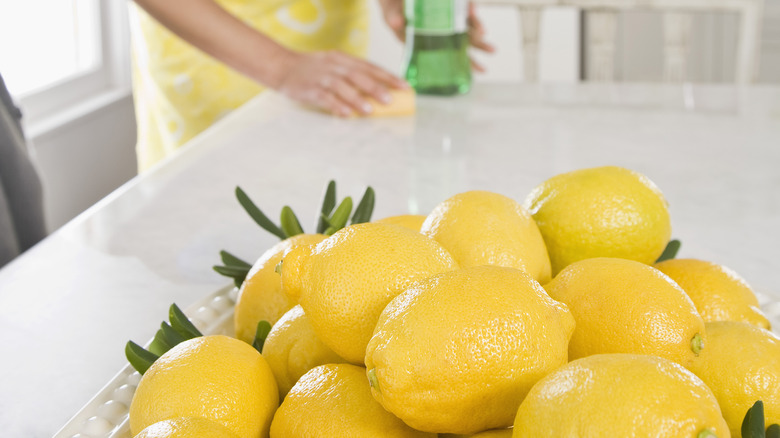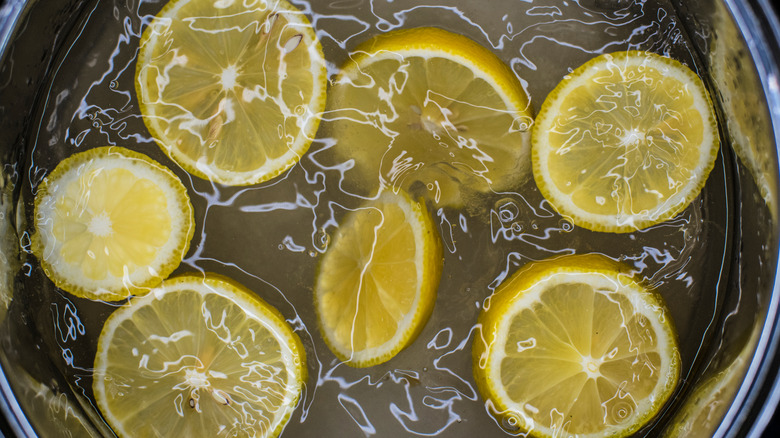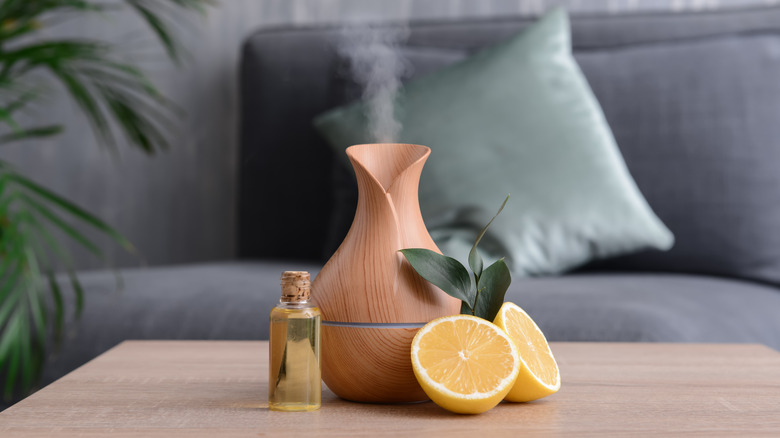Why You Should Skip This Lemon Trend For A Fresh-Smelling Home
At House Digest, we are kind of obsessed with life hacks, especially when it comes to cleaning. Make it an all-natural solution using only ingredients you probably already have at home, and we're in hook, line, and sinker. So we were obviously interested when we saw dozens of people claiming the best and easiest way to get rid of pesky odors was to simply put a few lemon peels in a steaming pot of water and let it do its magic in minutes. But this hack seems to be too good to be true.
Users of this hack claim that it will not only make your home smell of citrus, but the boiling lemon peels can actually purify the air of toxins. As far as we can tell, there's absolutely no scientific evidence that they do. The truth is, it doesn't seem that this hack does either of these things particularly well. Basically, water does not help to hold or spread aromas well. As an example, think about the process of cooking. Imagine putting fresh garlic and herbs in hot olive oil versus boiling water. The oil-washed ingredients are much more likely to peak your senses than the water. Because of this, it's not likely that the water-based steam carries much of the lemony aroma along with it, making it ineffective at both deodorizing and air purifying.
What the theory gets right
Lemons are often associated with freshness and cleanliness. And for good reason! They have a wonderful, zesty fragrance that is both soothing and invigorating, and their high pH level makes them exceptionally good at cutting through grease and grime, which is why you so often see lemon-scented air fresheners and lemon-based countertop cleaners. But simply boiling peels does not replicate these properties.
In theory, steam and essential oil diffusers work similarly. They both distribute fragrance through water particles in the air, but they don't require heat. That is because the fine mist or evaporated water particles hold the oil particles as they dissolve into the air, which is why a few drops of essential oils can seem to make an entire room smell fresh. However, the boiling bot of lemon peels will probably smell like a cup of weak tea at best. That's because the hot water can't extract the aromatic oils from the peels, because it's basically just cooking them. So if you don't have a diffuser, or are just keen to create a simmer pot, you can try using essential oils instead of fresh lemon peels.
Using essential oils effectively
Lemon essential oil is different from regular lemon peels because it has either been steam-extracted or cold-pressed from peels and distilled down into a concentrated liquid. In fact, the steam distillation process around lemon essential oils may be where the boiled peels hack came from. But peels aren't just submerged in boiling water to obtain the oil; they go through a similar process as spirit distillation, using a combination of pressure, hot water, and various chambers to separate the oils out. They're basically a highly concentrated solution of fragrant oils. These can also be added to countertop sprays or just water to give the room a quick odor refresh.
Alternatively, if you want something with a little more chemical science behind it, you can't go wrong with a bottle of Febreeze. It contains bonded sugar molecules called cyclodextrins, which are actually capable of clinging onto and capturing nasty odors in the air, making it a highly effective bad-smell combatant when nothing else seems to work.


